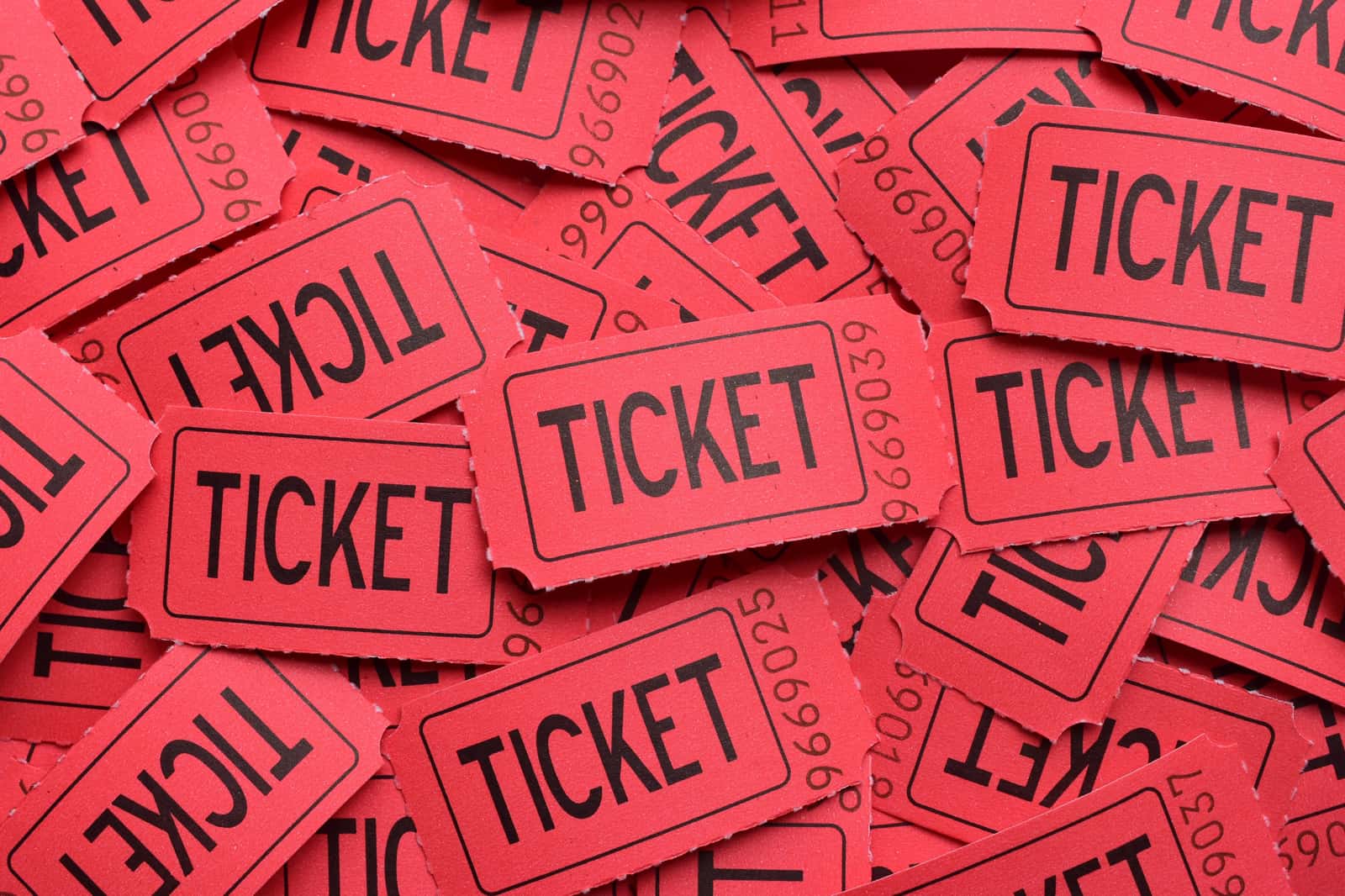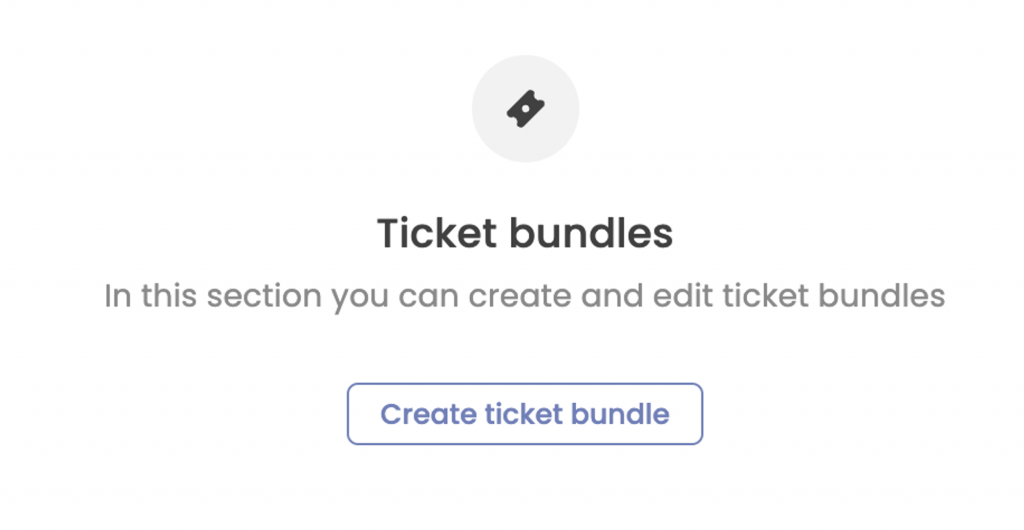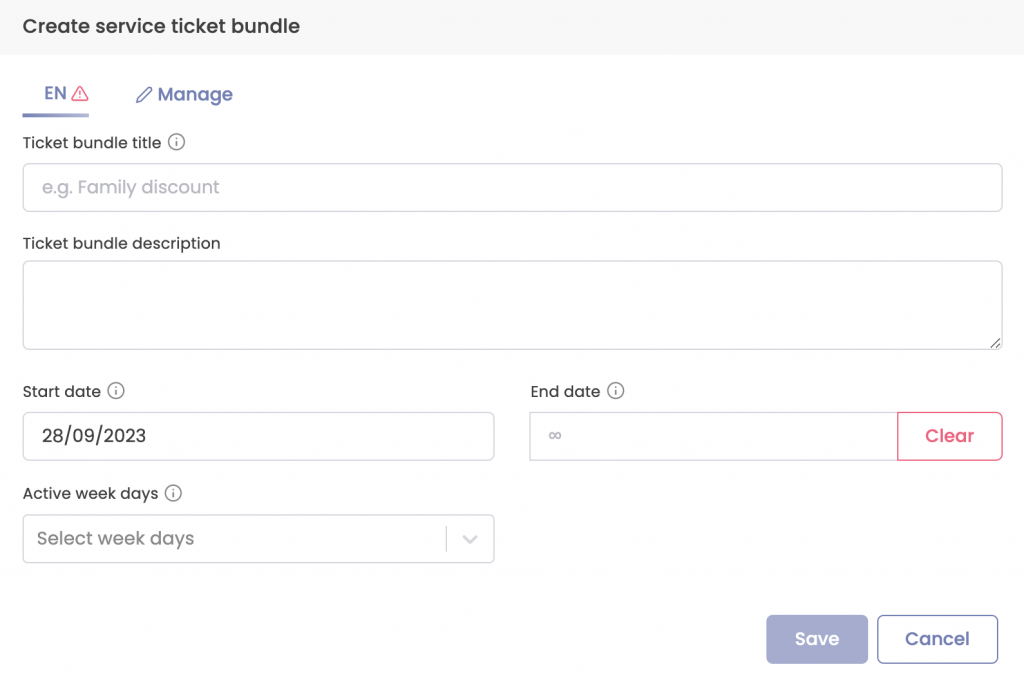
How to create ticket bundles
We are excited to announce the addition of a new “Ticket Bundles” feature to Bookla Business! This innovative feature allows any business to create ticket bundles, offering special discounts to customers purchasing multiple tickets. Available on both our Web widget and mobile apps for iOS and Android, this feature is a perfect fit for businesses where clients purchase a variety of ticket types, such as adult, child, and senior. It is particularly beneficial for establishments like museums, zoos, amusement parks, ski resorts, and more, allowing for a seamless and economical ticket-purchasing experience.
How ticket bundles work
Creating a ticket bundle is streamlined and intuitive; you’ll start by inputting basic information like the title, description, and the dates and days of the week when the bundle is active. Subsequently, you will need to formulate multiple rules for each bundle, enhancing the flexibility of this tool substantially. If prices are contingent on the time of the year, multiple ticket bundles can be created with specified start and end dates. Additionally, if bundle prices vary on specific days (e.g., weekends), this can be addressed by generating multiple ticket bundles and designating the applicable days of the week.
Create your first ticket bundle
- Open Bookla Portal
- Go to Service → Select service with tickets → Settings
- Simply scroll down to find the “Ticket Bundles” section; it is conveniently located just after the “Tickets” block.

- Click the “Create ticket bundle” button
- Now you will see a form with the basic data about the new ticket bundle

- Ticket bundle title – is the name of your bundle
- Ticket bundle description – a short description of your bundle.
- Start date – when the bundle will be active
- End date – until when the ticket bundle will be active
- Active week days – days when the ticket bundle is active
Adding rules to a ticket bundle
Once you’ve created a ticket bundle, you can easily add different rules. The process is extremely user-friendly; simply select a ticket, input the minimum and maximum quantities, and set the price. Further down in the article, you’ll find examples illustrating various cases. These examples will facilitate a deeper understanding of diverse use cases and guide you through creating them.
- Min – minimal amount of tickets that the user needs to select to match this rule.
- Max – the maximum amount of tickets that can be selected within this rule.
- Price – the price of each ticket when matching this rule.

To gain a clearer understanding of how the rules operate, let’s consider the following examples. Imagine a business offers three distinct types of tickets:
- Adult: €15
- Child: €5
- Senior: €10
Bundle #1
Let’s create a bundle where a group consisting of two adults and two children can avail of a discount, bringing the total price for the bundle to €30. Below is a table delineating the rules for this bundle:
| Ticket | Min | Max | Price |
|---|---|---|---|
| Adult | 2 | 2 | €15 |
| Child | 2 | 2 | 0 |
Bundle #2
Now, let’s envision a scenario where the family has more children, and we desire to offer a special price of €3 for each additional child. We need to retain the previous two rules and incorporate a new one specifying that the third child and any subsequent children will be admitted for €3 each.
| Ticket | Min | Max | Price |
|---|---|---|---|
| Adult | 2 | 2 | €15 |
| Child | 2 | 2 | 0 |
| Child | 3 | ∞ | €3 |
Bundle #3
Now, let’s introduce a more intricate bundle. In this scenario, one adult, accompanied by either two or three children, can gain admission for €20.
| Ticket | Min | Max | Price |
|---|---|---|---|
| Adult | 1 | 1 | €15 |
| Child | 1 | 1 | €5 |
| Child | 2 | 3 | 0 |
Bundle #4
This bundle can be structured more succinctly. We can assign a €20 price to the adult ticket and a €0 price to the tickets for the two to three children. Within a bundle, the price for any individual ticket can be higher or lower; what’s crucial is that the user will see the final price upon purchasing a ticket.
| Ticket | Min | Max | Price |
|---|---|---|---|
| Adult | 1 | 1 | €20 |
| Child | 2 | 3 | 0 |
More bundles
Seniors are adults too, right? 🙂 To sidestep any confusion for our clients, it’s essential to formulate diverse configurations that can accommodate any combination of tickets. Let’s revert to the bundle offering a special price of €30 for two adults and two kids. To address this accurately, we’ll need to establish three distinct bundles.
| Ticket | Min | Max | Price |
|---|---|---|---|
| Adult | 2 | 2 | €15 |
| Child | 2 | 2 | 0 |
| Ticket | Min | Max | Price |
|---|---|---|---|
| Adult | 1 | 1 | €15 |
| Senior | 1 | 1 | €15 |
| Child | 2 | 2 | 0 |
| Ticket | Min | Max | Price |
|---|---|---|---|
| Senior | 2 | 2 | €15 |
| Child | 2 | 2 | 0 |
Through illustrative examples, we’ve explored how this feature can address situations, whether it be families with more children or varied combinations of adults and children, ensuring clarity and user-friendliness. By considering different scenarios and crafting bundles accordingly, businesses can avoid customer confusion and enhance the overall purchasing experience, ultimately fostering customer satisfaction and loyalty.
With this addition, establishments such as museums, zoos, amusement parks, ski resorts, and many others can provide diverse and economical ticket-purchasing options, catering to the unique needs and preferences of their diverse clientele.
Embrace the innovation that the “Ticket Bundles” feature brings to Bookla Business, and leverage its capabilities to deliver streamlined and customized solutions that resonate with your customers’ expectations and elevate their experience with your establishment.